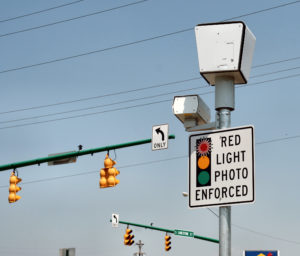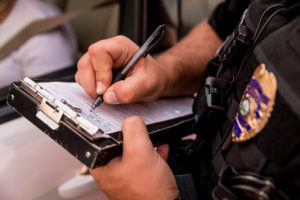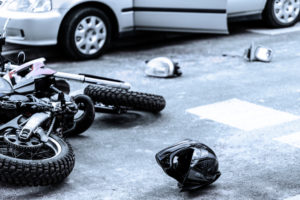In order to successfully recover for injuries caused by the owner or operator of a premises, you have to show that the business was negligent in that they failed to use ordinary care to keep their premises safe and to warn of hidden dangers. However, in Virginia, you also have to show that you, the injured person, are free from fault in causing your own injury and that the danger was not so open and obvious that you should have seen and avoided it. These are a lot of burdens to overcome. When someone calls me about a slip and fall or premises liability case, my first question is always about the severity of the injuries. Unless there are broken bones and surgeries involved, or some other permanent, significant injury, I know that I will not be able to take the case. The reason is these cases are fought so hard by the insurance companies that the likelihood of having to litigate the case deep into the process toward jury trial is high. It is expected that we will have to spend at least $10,000.00 to $20,000.00 to pursue one of these cases as far as litigation expenses. This is not money for the attorney and his time, rather it is the amount we have to pay to experts to prove up the case. Thus, we need to have a severe injury to make a case economically feasible to pursue.
The next question in my mind when screening these cases is do we have any slip and fall injury proof that the business owner was negligent. It is not enough to show that there was a banana peel on the floor. We have to show that the business owner left the banana peel there or that the banana peel had been left there sufficiently long for the business owner to have known it and done something about it. Normally, the injured client has no idea how the banana peel got on the floor or how long it had been there. The only way they will typically know this is if some admission was made by an employee of the business. The only other way that an injured person can prove fault by the store would be if some customer comes up and tells the injured person or their family that they knew that the banana peel had been on the floor and had told the store about it sufficiently long ago for them to have done something about it. Such clear evidence is rare. However, unless we have some viable theory to go on that it was a danger that was known to the business or should have been known to the business, then we do not have much to go forward on. The problem is that a judge will thrown out a premises liability injury case given it is just as possible that the banana peel was dropped on the floor by another customer, rather than by the store, 10 seconds before my client got hurt.
Even if we have a serious injury and some plausible theory of negligence by the store owner, you still have the problematic doctrine of “open and obvious danger.” The insurance company for the store will argue that a banana peel is so big and yellow as to be clear to anyone paying any attention for their own safety. They will be able to try to twist the facts to make it seem like the injured person should have avoided this danger or was blind for not having seen it.
As a result of the difficulties of these injury cases, many law firms won’t even take slip and fall or premises liability cases. They know that they are going to be expensive, hard fought battles. Although I am aware of the difficulties, I am willing to take a case on under the right circumstances. Some of the types of these cases our firm has handled successfully in the past include:
1) A man who slipped on grease near the buffet at a restaurant;
2) A person who fell in beer on the floor in a check out lane of a grocery store;
3) A woman who slipped in water without a sign out at a business; and
4) A performer who was caused to fall because of wet leaves on a driveway of the facility where she was to play music.
However, I have to turn down many cases because of those problems, even though I would like to help a person hurt by somebody else’s fault.

Rick Shapiro has practiced personal injury law for over 30 years in Virginia, North Carolina, and throughout the Southeastern United States. He is a Board-Certified Civil Trial Advocate by the National Board of Trial Advocacy (ABA Accredited) and has litigated injury cases throughout the eastern United States, including wrongful death, trucking, faulty products, railroad, and medical negligence claims. During his three-decade career, Shapiro has won client appeals before the VA Supreme Court, VA Court of Appeals, NC Supreme Court, SC Supreme Court, WV Supreme Court, TN Supreme Court, and three times before the United States Court of Appeals for the Fourth Circuit, underscoring Shapiro’s trial achievements. In addition, he and his law firm have won settlements/verdicts in excess of $100 million. His success in and out of the courtroom is a big reason why he was named 2019 “Lawyer of the Year” in railroad law in U.S. News & World Report's Best Lawyers publication (Norfolk, VA area), and he has been named a “Best Lawyer” and “Super Lawyer” by those peer-reviewed organizations for multiple years. Rick was also named a “Leader in the Law, Class of 2022” by Virginia Lawyers Weekly (total of 33 statewide honorees consisting of lawyers and judges across Virginia). And in September 2023, Rick was selected as a recipient of the National Board of Trial Advocacy (NBTA) 2023 President’s Award. Although many nominations were submitted from across the country, Rick was just one of eight attorneys chosen by the prestigious National Board which certifies civil trial attorneys across the U.S. Rick was also recently named to Virginia Lawyers Weekly 2024 Virginia’s Go To Lawyers Medical Malpractice. The attorneys awarded this honor are nominated by their colleagues and chosen by a panel from the publication.









Comments for this article are closed.